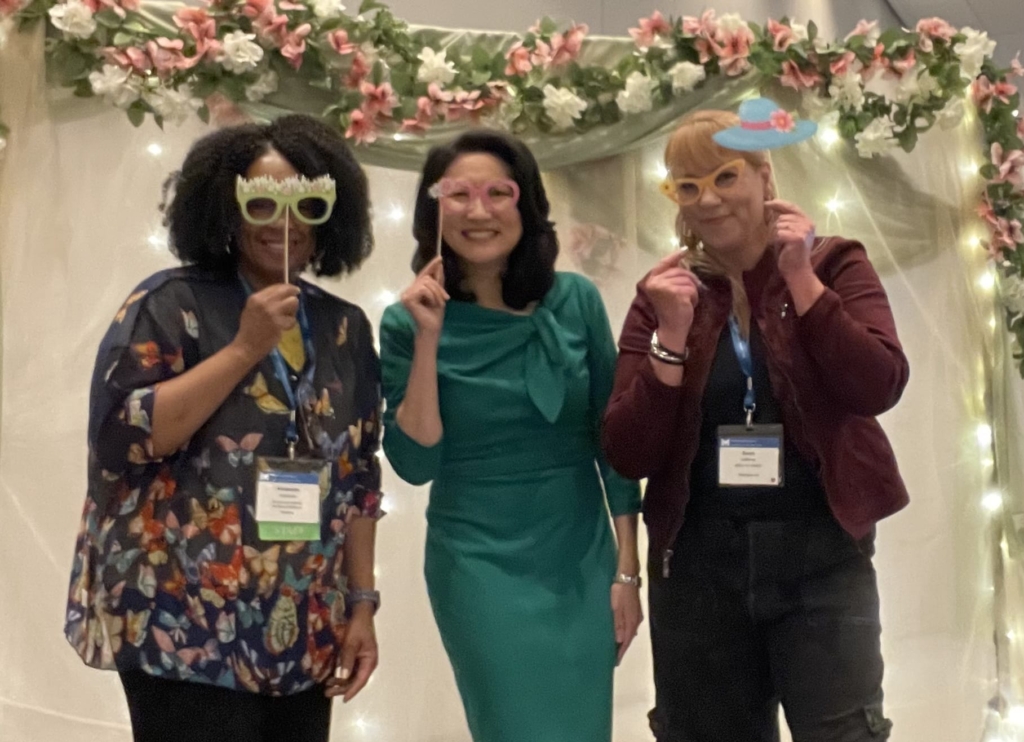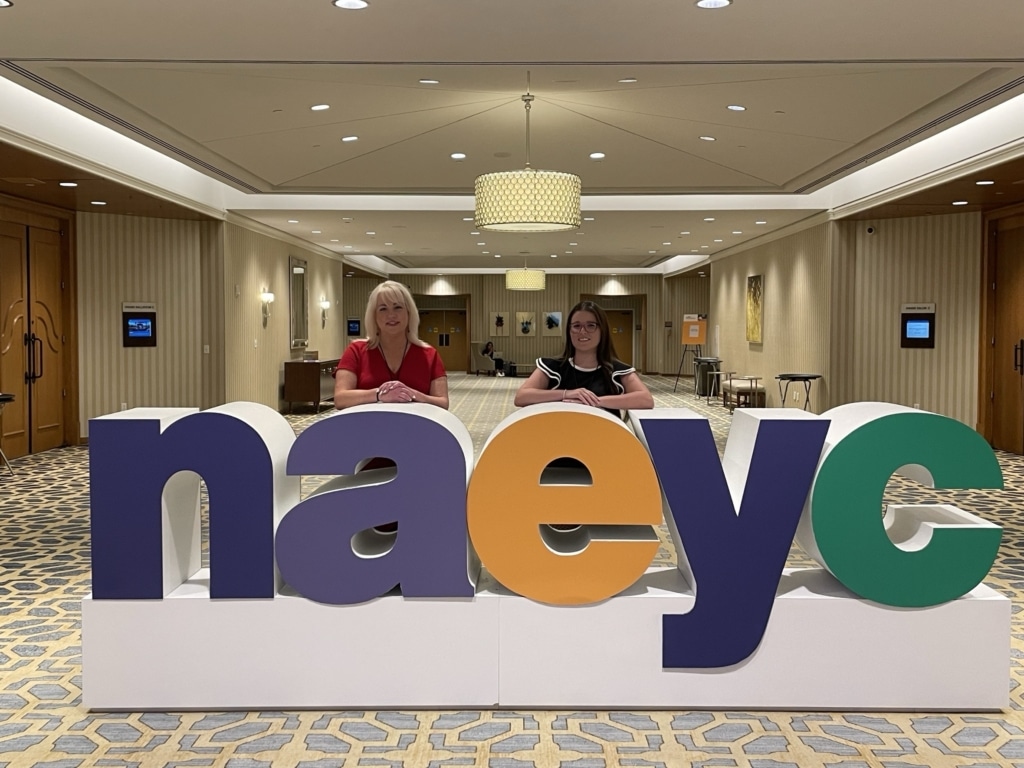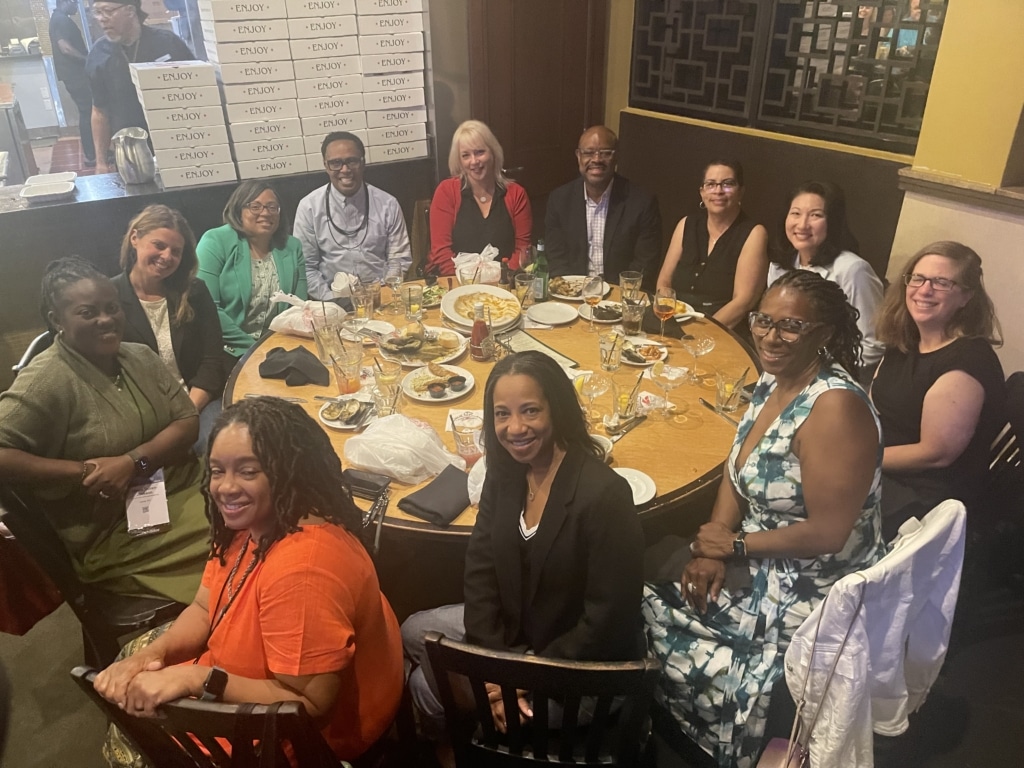Free Learning Module
Mindfulness for Early Childhood Educators
Access our learning module designed for early childhood educators and program directors interested in exploring mindfulness as a means of supporting staff and the children in their care.


"An essential way to improve the quality of life for babies is to support the adults in their lives, who in turn, help them thrive."
Every day, I’m grateful for the chance to connect with so many of you: early childhood professionals who are deeply committed to the well-being of young children.

Over time, my attention has turned increasingly to another critical part of that equation: your well-being. The adults who nurture, teach and care for young children carry immense responsibility. And your mental health matters just as much as the support you offer to others.
At recent events like the DC Early Educator Experience, the final NAEYC Professional Learning Institute, and the McCormick Institute’s Leadership Connections conference, I had powerful conversations that all pointed to an essential truth: our mental health is foundational to the care and support we provide to others.
Your relationship with each child matters and helps create an environment where they can learn to trust, feel safe and explore the world. But the truth is, we can’t offer our best to others if we’re running on empty.
Children thrive when the key adults in their lives are emotionally well. Strong, nurturing relationships with caregivers are the cornerstone of infant and early childhood mental health, and those relationships include you. You are the teacher, the guide, a daily constant in a child’s world.
How we are matters just as much as what we do. When we’re stressed, burned out or overwhelmed, it affects how we show up. And it’s understandable — this work is heavy. That’s why investing in your own mental health isn’t optional. It’s essential.
Mindfulness for Early Childhood Educators
Access our learning module designed for early childhood educators and program directors interested in exploring mindfulness as a means of supporting staff and the children in their care.
It’s not just about deep breathing or meditation. It’s about being present and showing up with curiosity, not judgment. It’s the practice of slowing down enough to notice how we are doing, so we can be more present with the children in our care.
When we practice mindfulness regularly and intentionally, we build resilience. Research tells us it lowers stress, improves sleep, boosts immunity, and enhances emotional regulation. In other words, it helps us stay steady, especially in moments that feel anything but calm.
And here’s the ripple effect: children benefit too. When we’re more regulated, we’re better able to co-regulate with them. They feel that steadiness. They trust it.
Strong, nurturing relationships with caregivers are the cornerstone of infant and early childhood mental health, and those relationships include you.
Sarah Lemoine
These fields are rooted in the same soil — strengths-based perspectives, relationships, culture and emotional well-being. Too often, we’re divided by terminology or systems. But if we take a step back, we see how aligned our goals and values really are. We all want children to feel safe, seen, and supported. And we all need systems that support us in doing that work.
We don’t need to choose between developmental appropriateness and mental health, or between academic outcomes and emotional wellness. These priorities are interconnected. And when we support them together, everyone benefits.

Learn more about the social-ecological perspective in supporting young children and their families.
This isn’t just about individual self-care. It’s about building communities and systems that prioritize and support the people doing this essential work.
Let’s keep checking in with ourselves and with one another. Let’s make space for honesty, joy and growth. Let’s normalize mindfulness, reflection and self-compassion.
Because caring for ourselves isn’t selfish. It’s investing in sustainability. It’s how we stay in this work. It’s how we keep showing up for kids. And it’s how we can build a stronger, more compassionate field, together.


|
Do you Believe In Babies?
|